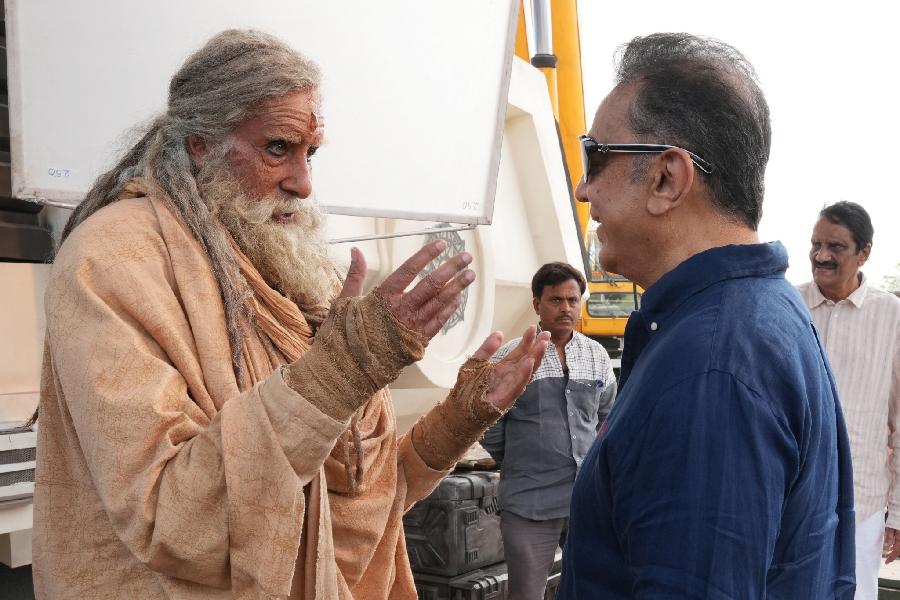 Wednesday, 25 February 2026
Wednesday, 25 February 2026
 Wednesday, 25 February 2026
Wednesday, 25 February 2026
A fiery speech by Pakistan’s army chief, General Asim Munir, arguing that the country is fundamentally different from “Hindu” India in every way has gone viral and stunned observers by its unusually aggressive tone.
In a rare public appearance, Munir thundered that Kashmir was Pakistan’s “jugular vein” and sharply emphasised the ideological gulf between the two countries – comments that have prompted a swift Indian diplomatic rebuttal.
Indian analysts are puzzling over Munir’s remarks, delivered at the Overseas Pakistanis Convention in Islamabad, in which he proclaimed: “Our religion is different, our customs are different, our traditions are different, our thoughts are different, our ambitions are different. That’s where the foundation of the two-nation theory was laid.”
Munir went on to declare unequivocally, “We are two nations. We are not one nation."
The speech provoked an angry response from India’s ministry of external affairs, which slammed back by asking: “How can anything foreign be a jugular vein?”
But more than the diplomatic volley, the speech has thrown a spotlight on Munir himself – a relatively low-profile figure until now. His strong rhetoric, particularly the emphasis on cultural and religious difference, has fuelled questions about what might have prompted such a combative stance.
Munir has been squeezed into a tight corner in recent weeks after the dramatic train hijacking by Baloch militants in which more than 150 people were taken hostage and more than 30 killed. In Khyber Pakhtunkhwa, along the border with Afghanistan, there have been terrorist attacks and shootouts which have kept Pakistan’s security forces on edge.
All this is driving speculation that Munir is trying to avoid looking weak. “These things have combined to put pressure on him to come out as a strong man,” said one Indian analyst. “He needs to come out as a strong leader and also carry his generals with him.”
Another analyst suggests that in the wake of these terrorist attacks, Munir wants to divert Pakistanis’ attention across the border to India. “He’s not a fundamentalist trying to build an anti-India narrative. Balochistan is going badly for them and they need someone to blame,” he says.
Munir also faces one crucial danger that no other army chief has ever faced before: he has to constantly look over his shoulder to ensure that ex-prime minister Imran Khan is not trying to stir up his supporters once again. Khan remains wildly popular despite being ousted and jailed.
It’s generally accepted that the last election was stolen from Khan and that the former cricketer-turned-politician would win in the crucial Punjab state if elections were held today. That reality poses a persistent threat to the army’s grip on civilian politics.
“Since he took over, his main issue has been to try to tame Imran Khan,” says another analyst. Khan was installed as the prime minister by the army. But he swiftly went rogue, refusing to obey their commands.
In Pakistan’s history, no civilian politician has ever openly defied the generals and survived in the job for long. The army saw to it that he was ousted. But Khan insists he cannot be kept permanently from regaining power.
“The narrative that Imran Khan has been trying to build is that, ‘I will not make any deals. And ultimately, you’ll see, I am going to come back to power.’”
For this clutch of reasons, Munir’s position is shakier than that of virtually all of his predecessors. That likely explains the unusually forceful tone of Munir’s speech, analysts say.
“You have to narrate Pakistan’s story to your children so that they don’t forget it – when our forefathers thought we were different from Hindus in every possible aspect of life,” he exhorted his convention audience.
Such tough talk is certainly unprecedented in recent years. The last army chief, General Javed Bajwa, made many cautious noises about the possibility of peace in the subcontinent. Even General Ashfaq Kayani, the chief before Bajwa, sent out what one Indian commentator describes as “garbled messaging”.
Before Kayani there was general-turned-President Pervez Musharraf, who dramatically shifted from being the mastermind behind the Kargil attack to turning peacemaker later.
Analysts argue, though, that Munir lacks the strategic sophistication of those earlier leaders that would help him lead a large army.
A middle-class officer with a puritanical streak, Munir has shown little hesitation in cracking down within the ranks – even court-martialing the powerful former ISI chief Faiz Hameed.
At the same time, his working relationship with Prime Minister Shehbaz Sharif appears smooth. Sharif, known as a technocrat and workaholic content to deal with the nuts and bolts of government, has made no moves to challenge the military that calls the shots.
The army, in fact, is a key player in the Special Investment Facilitation Council (SIFC), a civilian-military hybrid body aimed at injecting life back into the sputtering economy and luring foreign investment to the country.
Even Shehbaz’s brother, former prime minister Nawaz Sharif – who was once thrown out of office by the army – seems to have reconciled himself to the fact that he must bide his time on the sidelines and can’t return to power in the near future.
Some Pakistani analysts feel India may be overreacting to the general’s remarks. But in a region where words are often read as signals, many observers in India are wondering what might come next.







